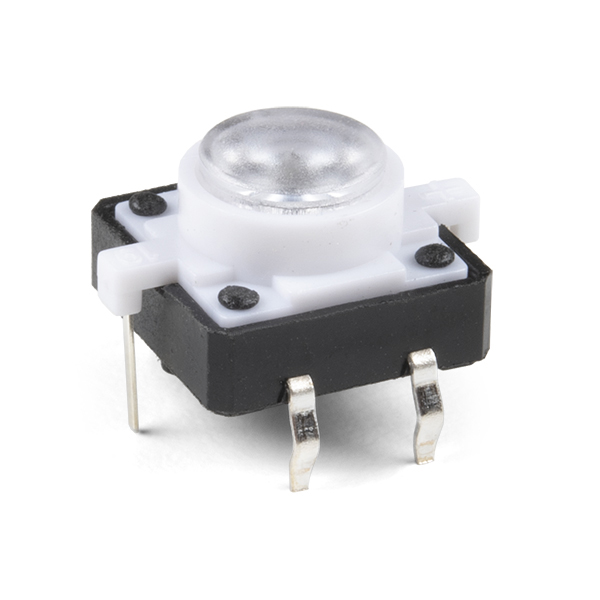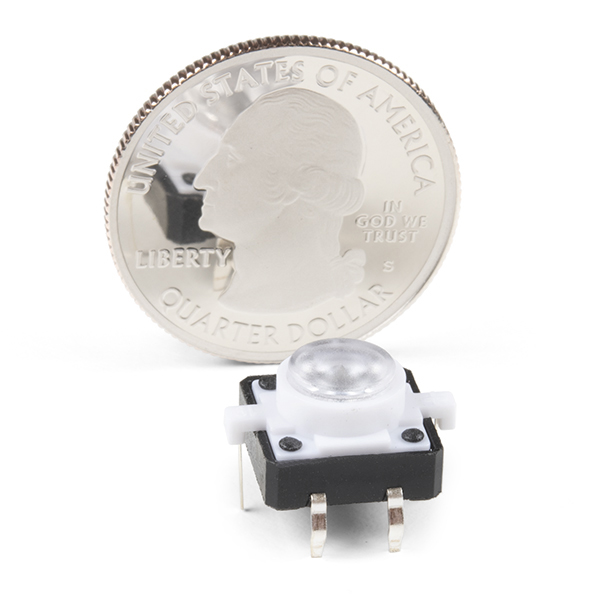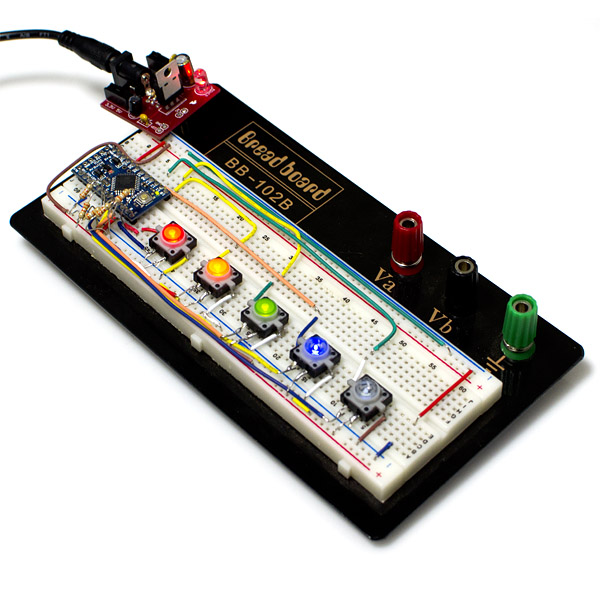This is a simple LED-illuminated tactile button with a clear cap. It's just like a basic tactile button, but it lights up blue! So now you can get visual feedback, or light up your project. These have a 12mm body and are rated for 50mA. They don't easily fit into a breadboard, but check below for a breakout board. We also have these in a a variety of colors, check below to see the others.
LED Tactile Button - Blue Product Help and Resources
Core Skill: Soldering
This skill defines how difficult the soldering is on a particular product. It might be a couple simple solder joints, or require special reflow tools.
Skill Level: Rookie - The number of pins increases, and you will have to determine polarity of components and some of the components might be a bit trickier or close together. You might need solder wick or flux.
See all skill levels
Core Skill: Electrical Prototyping
If it requires power, you need to know how much, what all the pins do, and how to hook it up. You may need to reference datasheets, schematics, and know the ins and outs of electronics.
Skill Level: Noob - You don't need to reference a datasheet, but you will need to know basic power requirements.
See all skill levels
Comments
Looking for answers to technical questions?
We welcome your comments and suggestions below. However, if you are looking for solutions to technical questions please see our Technical Assistance page.
Customer Reviews
No reviews yet.




Are there any larger caps available for this button?
I want a button to light up then turn off when I hit it, would this be a possible solution? Can't get a read from the gibberish datasheet
The data sheet contains priceless verbiage such as "Operating switch is unhindered, rhythmed , and there is not palpable clag." and "...no serious defects such as very serious shrink, scarcity, fleck, disrepair, transmutation, etc." Transmutation?
The Palpable Clag were a 90's indie gargage band.
Transmutation is a mispelling of Transmogrification, which means that 1/100000 buttons, when pressed, will instantly turn the user into a Snipe.
Engrish.
Yeah, the data sheet is pretty much useless. No pinouts. No forward voltage drop rating for the LED. At least we know how well it will hold up to SALT SPRAY though! LOL!
Peter.
Transmutation is creating a valuable element such as gold, from cheaper elements. But you have to put so much energy into colliding the atoms that it would cost more to make it, then dig it out of the ground! So if only the button could produce gold or another valuable Element!! Then sparkfun would be selling another awesome product!!
That made me think... An uncontrolled nuclear reaction (Read: nuclear weapon) with a byproduct of gold?
since sparkfun isn't doing a good job of providing data for these buttons... this seems to work best for me:
blue led juice = 3vdc 10mA
button = 12v
button current max = ???
"Assembly of parts has no badness"
"Position to maximum moving distance shall be measurement"
Best two quotes.
No, the best quote is this one, "Nate hoped for a website where he could easily find parts, where he could see clear pictures of what he was buying, and where he didn't have to scour for hours to find data sheets and documentation - but that website didn't exist."
It's a shame this has a clear lens. I can see applications where it'd be valuable to have the color of the button in the unlit state match the color of the button in the lit state, like the other buttons in this series.
In the off state, run the LED with a low duty cycle PWM. Then it will be dimly lit for off. Once pressed, set the PWM to full-on.
Peter.
What kind of led is build-in into this buttons ? I think it's no plcc6 ?
I tried the recommendation by "joshl" and it worked.. I used 5V and a 270-ohm resistor. Seems okay - decent brightness.
I can't find the max voltage rating for these? if I'm using 5v, would I just use a 330Ω resistor?
Looks to me we can connect them so that the LED lights when the button is pressed, but will we suffer voltage drop issues from the LED?